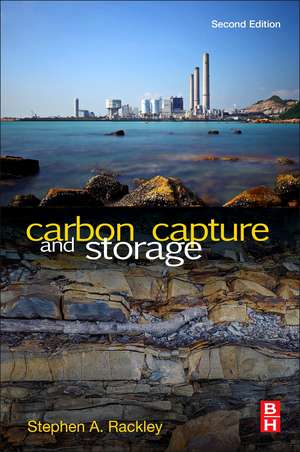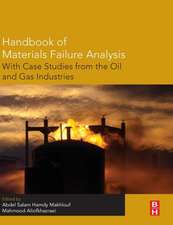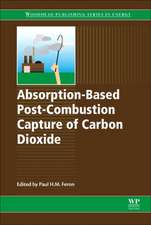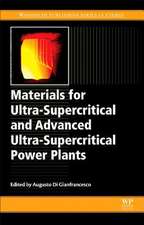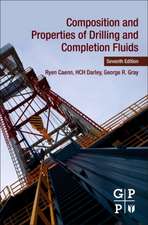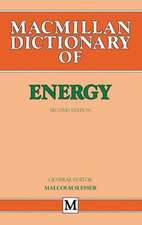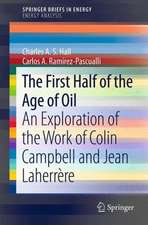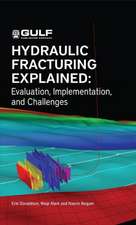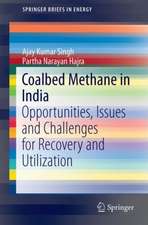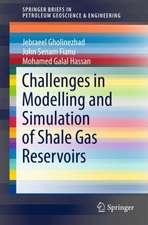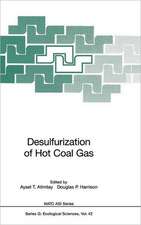Carbon Capture and Storage
Autor Steve A. Rackleyen Limba Engleză Paperback – 10 sep 2017
The book opens with an introductory section that provides background regarding the need to reduce greenhouse gas emissions, an overview of carbon capture and storage (CCS) technologies, and a primer in the fundamentals of power generation. The next chapters focus on key carbon capture technologies, including absorption, adsorption, and membrane-based systems, addressing their applications in both the power and non-power sectors.
New for the second edition, a dedicated section on geological storage of carbon dioxide follows, with chapters addressing the relevant features, events, and processes (FEP) associated with this scenario. Non-geological storage methods such as ocean storage and storage in terrestrial ecosystems are the subject of the final group of chapters. A chapter on carbon dioxide transportation is also included.
This extensively revised and expanded second edition will be a valuable resource for power plant engineers, chemical engineers, geological engineers, environmental engineers, and industrial engineers seeking a concise, yet authoritative one-volume overview of this field. Researchers, consultants, and policy makers entering this discipline also will benefit from this reference.
- Provides all-inclusive and authoritative coverage of the major technologies under consideration for carbon capture and storage
- Presents information in an approachable format, for those with a scientific or engineering background, as well as non-specialists
- Includes a new Part III dedicated to geological storage of carbon dioxide, covering this topic in much more depth (9 chapters compared to 1 in the first edition)
- Features revisions and updates to all chapters
- Includes new sections or expanded content on: chemical looping/calcium looping; life-cycle GHG assessment of CCS technologies; non-power industries (e.g. including pulp/paper alongside ones already covered); carbon negative technologies (e.g. BECCS); gas-fired power plants; biomass and waste co-firing; and hydrate-based capture
| Toate formatele și edițiile | Preț | Express |
|---|---|---|
| Paperback (1) | 808.11 lei 5-7 săpt. | |
| ELSEVIER SCIENCE – 10 sep 2017 | 808.11 lei 5-7 săpt. | |
| Hardback (1) | 951.20 lei 6-8 săpt. | |
| ELSEVIER SCIENCE – 25 oct 2009 | 951.20 lei 6-8 săpt. |
Preț: 808.11 lei
Preț vechi: 1051.08 lei
-23% Nou
Puncte Express: 1212
Preț estimativ în valută:
154.66€ • 161.51$ • 128.22£
154.66€ • 161.51$ • 128.22£
Carte tipărită la comandă
Livrare economică 04-18 februarie 25
Preluare comenzi: 021 569.72.76
Specificații
ISBN-13: 9780128120415
ISBN-10: 012812041X
Pagini: 698
Dimensiuni: 152 x 229 x 40 mm
Greutate: 1.11 kg
Ediția:2
Editura: ELSEVIER SCIENCE
ISBN-10: 012812041X
Pagini: 698
Dimensiuni: 152 x 229 x 40 mm
Greutate: 1.11 kg
Ediția:2
Editura: ELSEVIER SCIENCE
Cuprins
Part I Introduction 1. Introduction 2. Overview of CCS technologies 3. Power generation fundamentals
Part II Carbon capture technologies 4. Carbon capture from power generation 5. Carbon capture from industrial processes 6. Absorption capture systems 7. Adsorption capture systems 8. Membrane separation systems 9. Cryogenic and distillation systems 10. Mineral carbonation
Part III Geological storage 11. Introduction to Geological Storage 12. Geological and Geomechanical FEP 13. Fluid properties and rock-fluid interaction FEP 14. Geochemical and Biogeochemical FEP 15. Hydrological and Environmental FEP 16. Engineered system FEP 17. Saline aquifer geological storage 18. Other geological storage options 19. Site characterization and monitoring technologies
Part IV Other storage options 20. Ocean storage 21. Storage in terrestrial ecosystems 22. Other sequestration and use options 23. Carbon dioxide transportation
Part II Carbon capture technologies 4. Carbon capture from power generation 5. Carbon capture from industrial processes 6. Absorption capture systems 7. Adsorption capture systems 8. Membrane separation systems 9. Cryogenic and distillation systems 10. Mineral carbonation
Part III Geological storage 11. Introduction to Geological Storage 12. Geological and Geomechanical FEP 13. Fluid properties and rock-fluid interaction FEP 14. Geochemical and Biogeochemical FEP 15. Hydrological and Environmental FEP 16. Engineered system FEP 17. Saline aquifer geological storage 18. Other geological storage options 19. Site characterization and monitoring technologies
Part IV Other storage options 20. Ocean storage 21. Storage in terrestrial ecosystems 22. Other sequestration and use options 23. Carbon dioxide transportation
